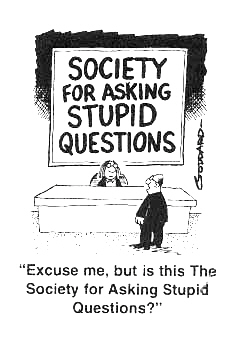 There’s a quotation attributed to Henry Ford that is repeated (far too often I must say) in conversations about innovation and new product development. It’s not the “any colour as long as it’s black” quote. It’s a different one. It goes something like this.
There’s a quotation attributed to Henry Ford that is repeated (far too often I must say) in conversations about innovation and new product development. It’s not the “any colour as long as it’s black” quote. It’s a different one. It goes something like this.
If I had asked people what they wanted, they would have said a faster horse.
You’ve heard it before haven’t you? It gets used all the time. Even Steve Jobs has used it in interviews.
Unfortunately, the people who use this quote most often seem to be people who think they have all the answers or want to quash any discussion about getting outside validation of ideas or plans.
They speak it as if it is an absolute rule about not asking questions to customers or others in the market.
Dumb and …
I hate this quote because (first of all) he NEVER said it, and secondly, even if he did, quite honestly, it’s a dumb quote for people to be using nowadays given what we know about new market evolution and dynamics of early adopters.
Now don’t get me wrong. I have nothing against Ford personally. He was a VERY successful businessman and did a lot to help those who worked for him. He also said a lot of things worth repeating, but this is NOT one of them, and certainly not in the volume that this quote get repeated today.
Here are a couple of other quotes, not from Ford, but which help explain why Ford’s statement is particularly pointless.
- The answers you get come from the questions you ask.
- Ask a stupid question, and you’ll get a stupid answer.
The first one is just a more polite way of saying the second. 🙂
And what other answer than “faster horses” would you expect if you had asked lay people using horses and buggies about the improvements they wanted in personal transportation? Are they futurists who could envision whole new economies and societal changes?
Even the “smart” people can be wrong
In the late 1890s, Ford was working as an engineer and worked on his automotive “experiments” in his off hours. Ford deeply believed that the gasoline engine was critical to the success of automobiles. And although Ford had risen to chief engineer in his job, Ford’s boss, the President of the company where Ford worked, showed little support for Ford’s hobby. Eventually Ford had to choose between his hobby and his job. In late 1899, Ford chose his hobby.
Ford left his job as Chief Engineer of the Detroit Edison Company. The president of that company was none other than Thomas Edison himself.
So if Thomas Edison couldn’t even see the future, what would the average person of the time think?
Of course, Edison also believed that direct current (not alternating current) was the future for electric power, and killed an elephant to discredit his competition, but that’s another story.
Understanding needs and objectives
Now here’s the irony of all this. We know that simply asking people what they want is not how to determine needs and objectives. And those are the things we need to understand when building products for people. Well it turns out that Ford understood that too. And here’s a quote from him to prove it.
If there is any one secret of success, it lies in the ability to get the other person’s point of view and see things from that person’s angle as well as from your own.
Source: nobosh.com
So the next time someone tries to block external research by pulling out that lame “faster horse” quote, drop this one on them and see how they react.
Saeed
Tweet this: RT @onpm: New Blog post: Why I hate that Henry Ford (faster horses) quote! #prodmgmt http://bit.ly/9OcrHW